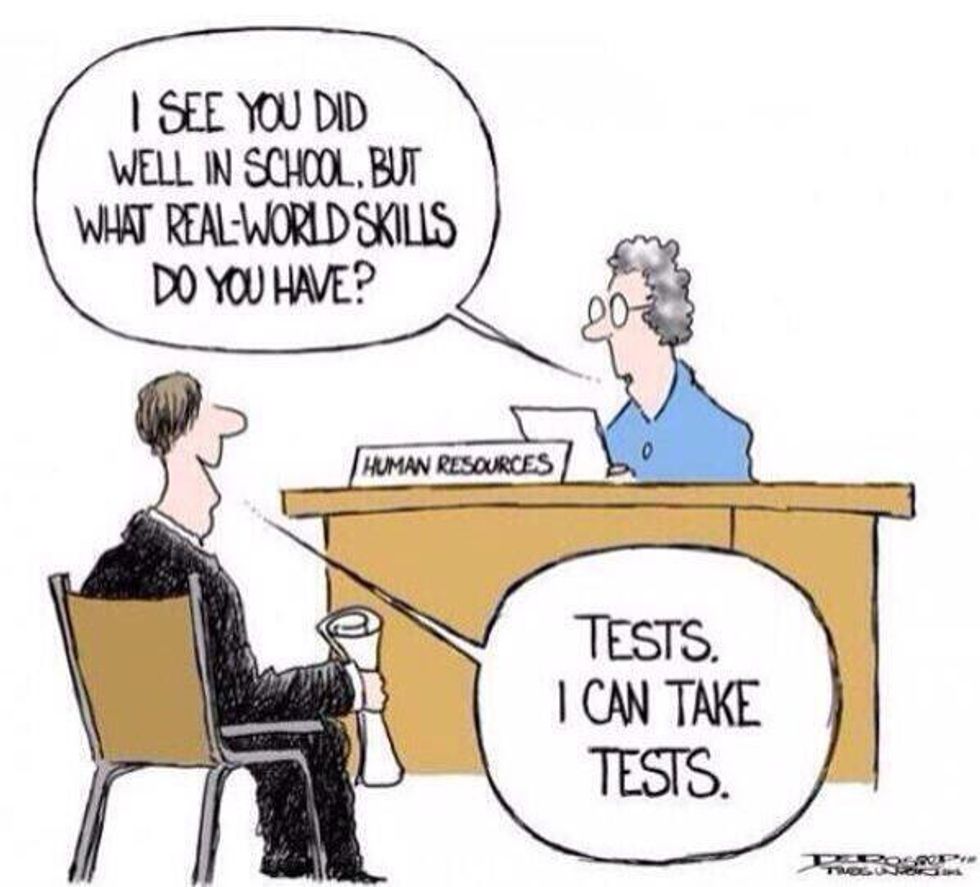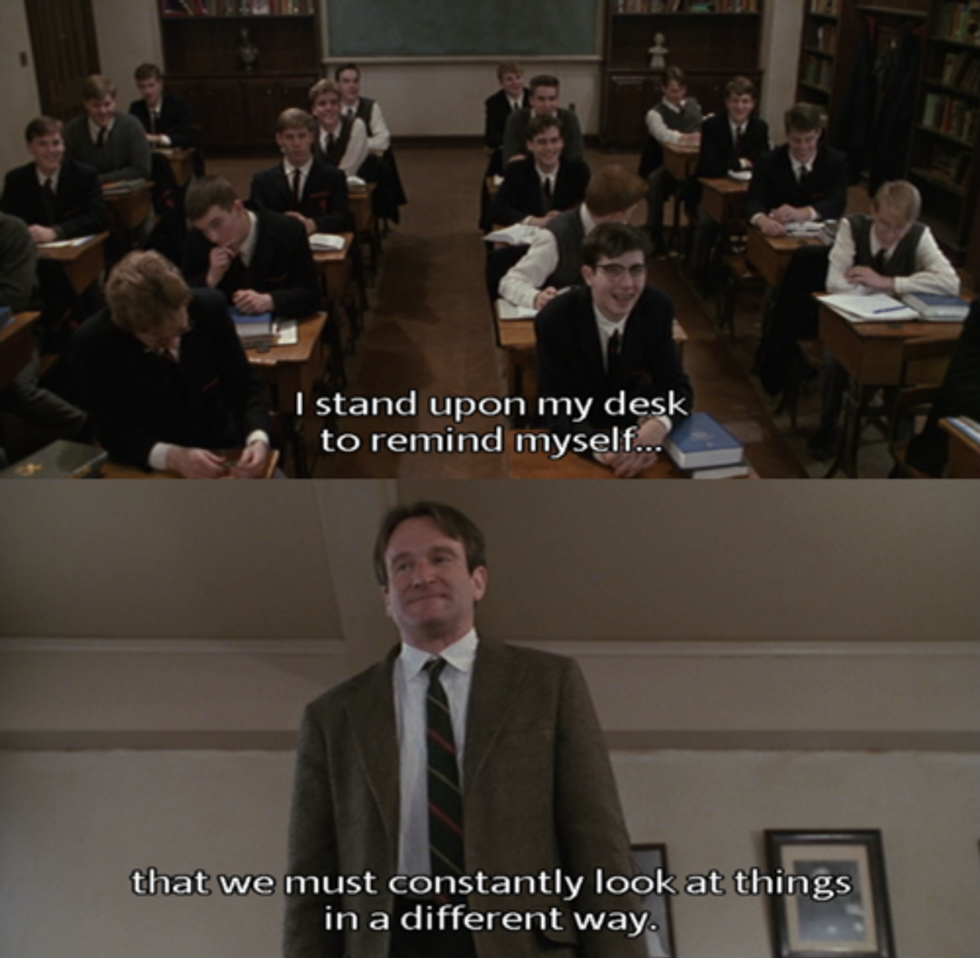At the end of the year, grade school and high school teachers in the state of Virginia are evaluated by one thing: SOLs, also known as "standards of learning."
I've already graduated from high school, but there are things I learned in the classroom that definitely stuck. And guess what. None of them had anything to do with SOLs.
Science experiments, field trips, research papers, and creative exercises seem meaningless to the Virginia Department of Education. There is one focus – did the students pass their SOLs? If they did, great, there's nothing to worry about. If not, the teacher must have failed somewhere along the way.

You're telling me SOLs don't encourage "teaching to the test." You're telling me that the stressed importance and competitive scoring across the nation has no effect on what happens in the classroom.
There are pros and cons to this kind of standardized testing, just like anything else. These standardized tests provide feedback and constructive criticism from the government on the education your child is receiving. Sounds great. Focused achievement in four core areas: math, science, english and history. Sounds great. Increased percentages of schools successfully reaching state standards over the years. Sounds great.
What doesn't sound great is a teacher stuck between "teaching to the test" for their own benefits, or going out of their way to be creative in the classroom and receiving a low standardized testing score. Additionally, administrations want their schools to look good and receive high ratings, and, surprisingly enough, they're willing to do whatever it takes to get there. The importance of test scores has overtaken the importance of students' education, and it's only getting worse.

Being a teacher is a profession which includes more than sitting at desk, following a curriculum and making sure your students pass a uniform test issued across the state. Not every teacher uses the same methods of instruction, which is a good thing. Maybe you were better at using formula A to solve a math equation, but on the SOL you are forced to use formula B. Maybe your class needed a little extra time analyzing "1984" or "Brave New World," but you had to move on from them in order to meet the testing standards.
I'm not throwing any names out there, but in high school, a majority of my teachers explained how SOLs actually hurt their teaching abilities. The standards of learning set by the state are not the main problem. The competitions for higher rankings and test scores that will "look good on paper" are what have created this new computerized, straight-forward education for the future generation. The administration staff shifts gears to focus on the success of the school as a whole, instead of whether or not the high school is preparing its students for college or the real world.
When you evaluate a student by a few test scores at the end of the year, it leads to evaluating educators on their teaching performances, which leads to careless teaching, which then leads to administration aiming for teachers who will "teach to the test," which eventually leads to a school ranked #1 in SOL results, but ranked last in a purposeful education.





















